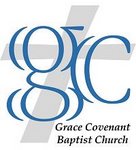I am currently attending the 10th annual Ark-La-Tex Regional Founders Conference in Shreveport, LA. The conference theme is "The Sufficiency of Scripture." Due to my tardiness, I was unable to attend the devotional psalm given by Shaun Armstrong.
In the opening session on Thursday evening, Earl Blackburn spoke on "The Nature of Holy Scripture." He addressed the following questions:
1. How might the Bible be described in general?
(1) a large book; (2) a divided book (OT & NT); (3) an ancient book; (4) a foreign book (foreign authors, foreign lands; foreign cultures); (5) a translated book (from Hebrew, Aramaic, & Greek); (6) a multi-book book; (7) a book of literary genre; (8) a book of many authors; (9) a book with only one Author; (10) a topically arranged book; (11) an historically arranged book; (12) a book of organic unity; (13) a book punctuated by advance and progress in a covenental structure; (14) a canonized book; (15) a preserved book
2. How might we describe the nature of Scripture?
7 attributes of the Bible that we need to know:
(1) It is inspired - a product of divine self-disclosure
(2) It is inerrant - Freedom from every type of error (original manuscripts, not translations)
(3) It is infallible - the Scriptures cannot err. Therefore, they can never lead you astray. Whatever subject they address, they address infallibly.
(4) It is authoritative - 3,308 times "God spoke"
(5) It is perspicuous - clarity; clear; transparent
(6) It is preserved
(7) It is sufficient
Blackburn concluded with the challenge to return to the rally cry of the Reformers, sola Scriptura. In quoting the words of Christ Matthew 4:4, "MAN SHALL NOT LIVE ON BREAD ALONE, BUT ON EVERY WORD THAT PROCEEDS OUT OF THE MOUTH OF GOD," Blackburn observed, "The problem in the world today (and sadly with some professing Christians) is that they are living by bread alone." He considered 5 areas that the sufficiency of Scripture is under attack today:
(1) Salvation in Christ alone - dangers of relativism and pragmatism
(2) The charismatic movement - the need for signs & wonders for verification; preaching of the gospel not enough
(3) The church's worship - entertainment-oriented; music central, not the proclamation of the Word
(4) The Christian's walk - danger of legalism
(5) The Christian's service - Future 500 approach to missions & evangelism
Friday, February 23, 2007
Subscribe to:
Post Comments (Atom)


No comments:
Post a Comment